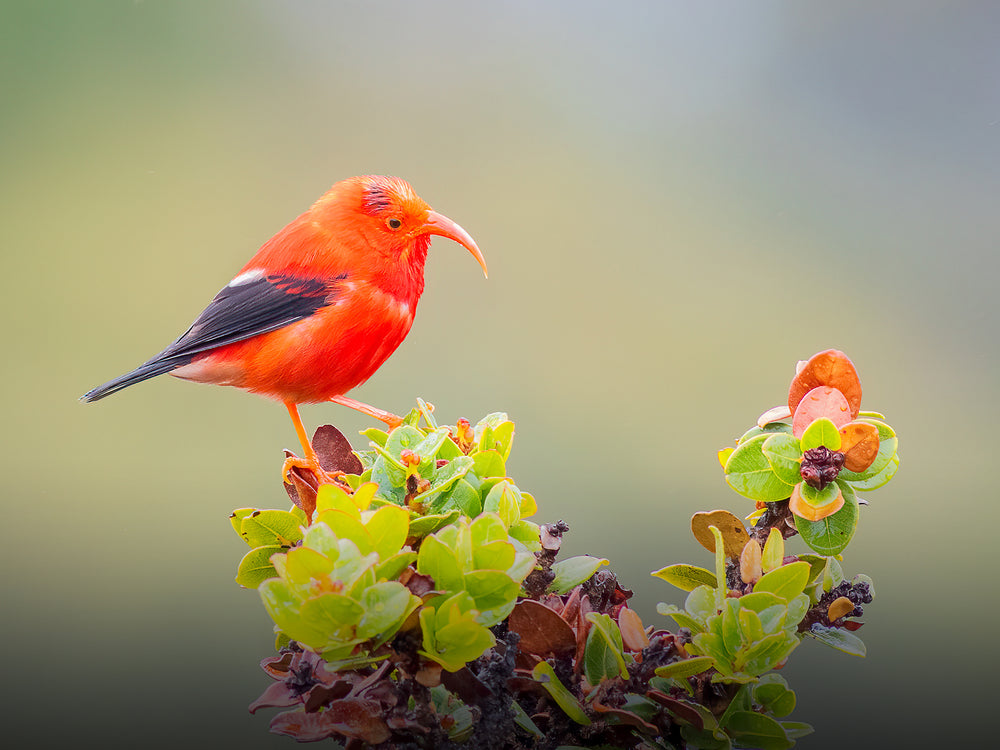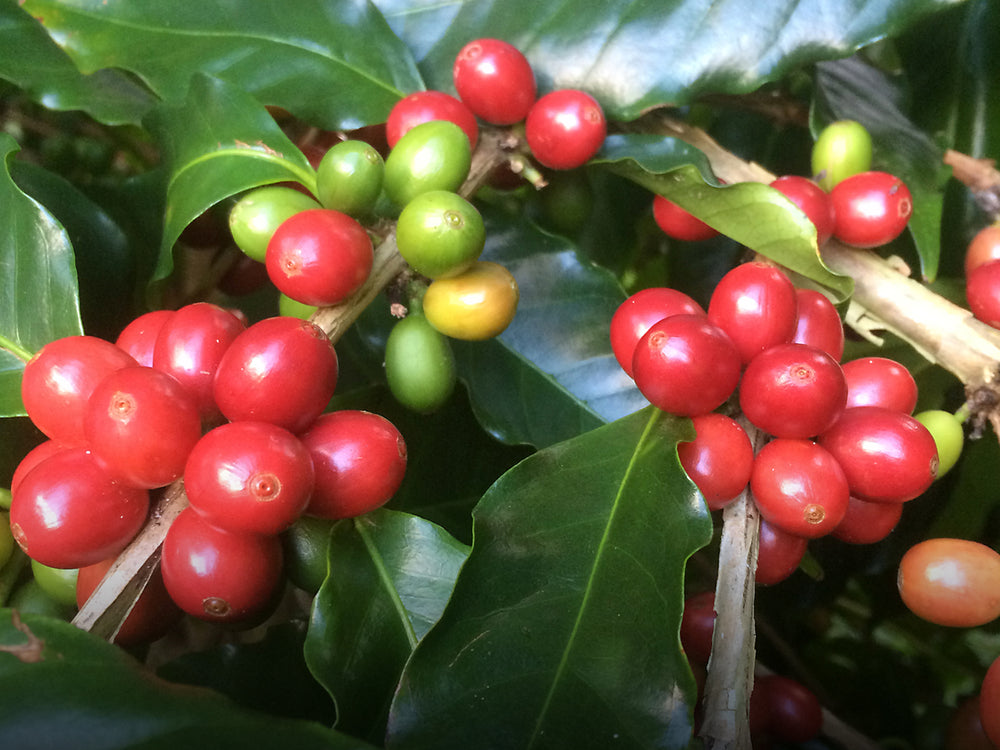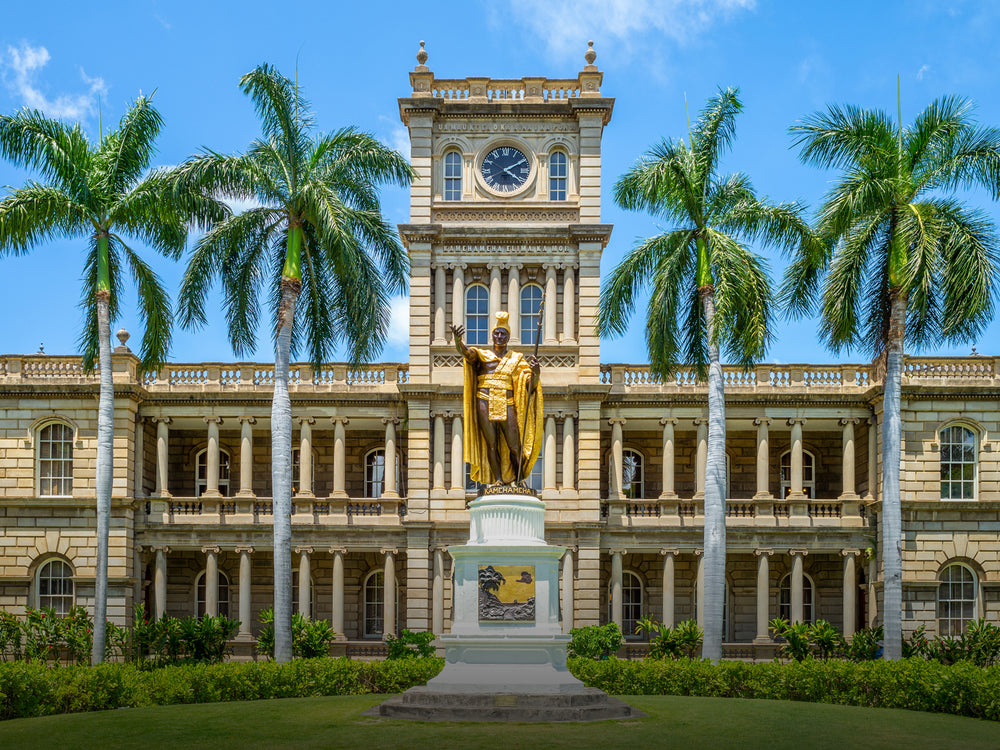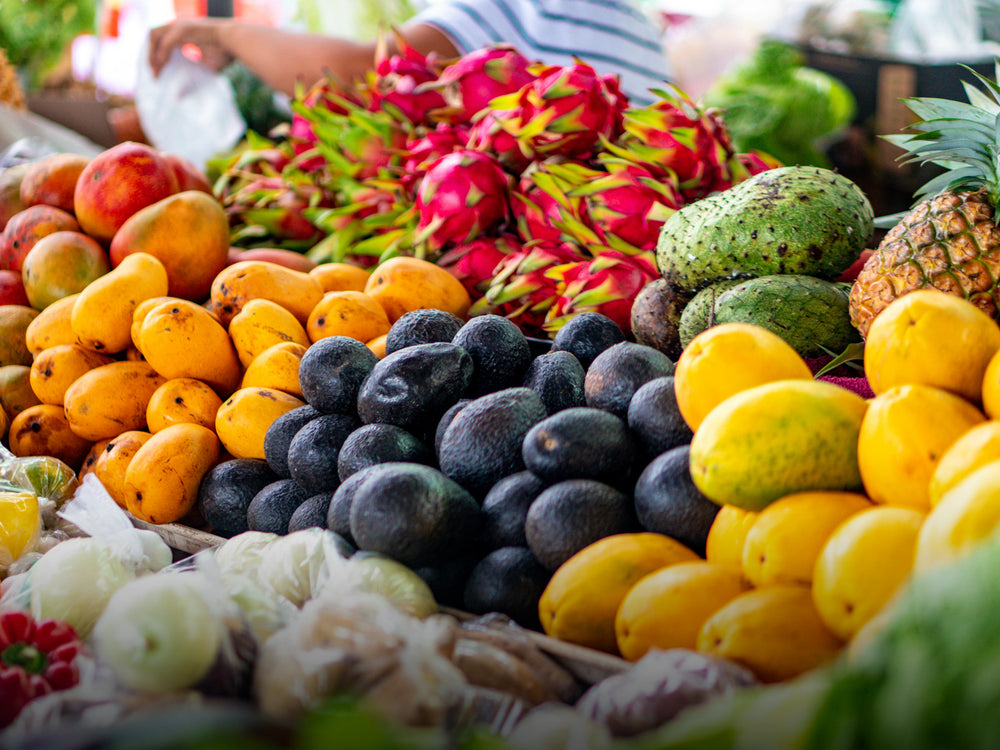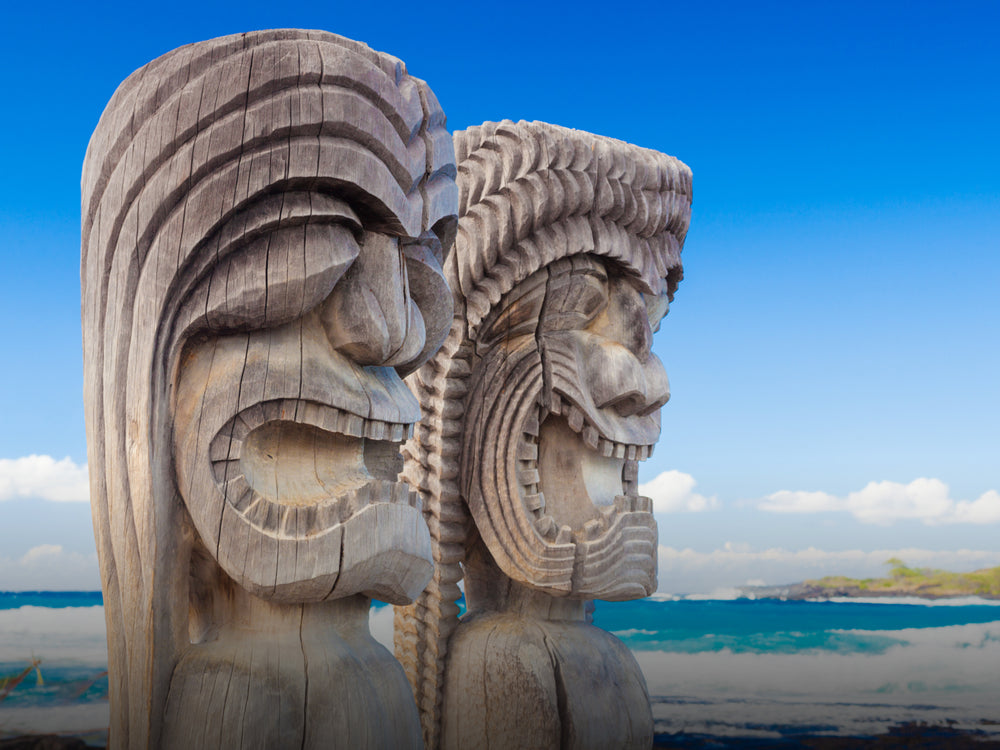Making The Right Choice - High Quality Coffee Orchards
by Les Drent

Land clearing requires both skill and years of experience. Hano Grace of South Kona brings both to the job.
George Yasuda has been farming Kona coffee for decades and he takes as much pride in helping others establish and maintain successful coffee orchards as he does in growing his own high quality coffee. Upon getting to know George one realizes that his expertise come from decades of experimentation, and hands on learning as a farmer. Not only has he played an invaluable part in the growth of many award winning farms in Kona but his expertise has reached out to aid in the success of other coffee farms around Hawaii. I can attribute much of my own success as a coffee farmer to George's advice and I couldn't be happier with the assistance he has lent me at Blair Estate Organic coffee farm here in Kauai. In only my second year of growth my tree heights range from four to eight feet and while I took in a hefty load of coffee this year I expect a very bountiful harvest in 2004! I would personally urge anyone serious about growing coffee commercially to seek out George's advice. Besides his wealth of knowledge George brings the spirit of Aloha to the job as well!
Here are a few of George's key points involved in attaining a high quality coffee orchard.
1. Acquire the right land
2. Developing the property into a high production, high quality efficient and aesthetically pleasing farm
3. Proper maintenance of the farm
4. Proper harvesting and processing
5. Marketing your high quality coffee
If planted and cared for properly a coffee orchard can produce an average of 21 pounds of coffee cherry per tree after only 2 years of growth! Notice the effect of using proper fertilizer and the varying look of the landscape in this picture. The lighter colored monkey pod tree on the right was the healthiest of the three before George’s fertilizer program started.
What you need to know about acquiring the right piece of land: Coffee does best in well drained volcanic soils with rainfall of about 80 inches primarily in April to November with supportive rains in December to March. Kona coffee of course needs to be grown in the districts of North and South Kona. The optimum elevation is 800 feet to 2,300 feet. Avoid poorly drained soils, extremely rocky soils or elevations that are over 2,500 feet or exposed to strong winds. Avoiding flood prone areas should be considered as well. If you have a certain subject property in mind and have questions about its suitability in growing coffee, just give George a call at 808-324-1495 or email him at tiarelc@gte.net
Once you acquire a piece of land, next comes the development stage. Its not just a matter of planting trees in a row, a lot more is involved in order to achieve a high production, high quality, efficient and aesthetically pleasing orchard that bears productively for decades if not a century.
Preparing the soil with the right amendments and fertilizers, bulldozing the property properly with soil erosion controls, using the best coffee stock selection from reputable nurseries, designing and installing reliable high quality irrigation systems are just some of the facets to consider.
Tiare Lani Coffee Inc. has been advising farmers and installing awesome high production orchards for nearly two and a half decades. Why not get some help from many years of experience, expertise, and proven techniques. The pictures that accompany this article portray what a properly established coffee farm should look like.

Besides helping other farmers achieve success in the coffee industry, George Yasuda maintains his own high quality farm and sells his 100% Kona coffee under the Tiare Lani Coffee label.
Readers may submit editorial comments to any of our stories by sending an email to les@lbdcoffee.com. We would be happy to attach your comments and feedback to anything we publish online. Thank you for your interest.
Story appeared originally in Coffee Times print magazine and appears online for archival purposes only. Any use or reprinting of these stories without the expressed written consent of the author is prohibited.



